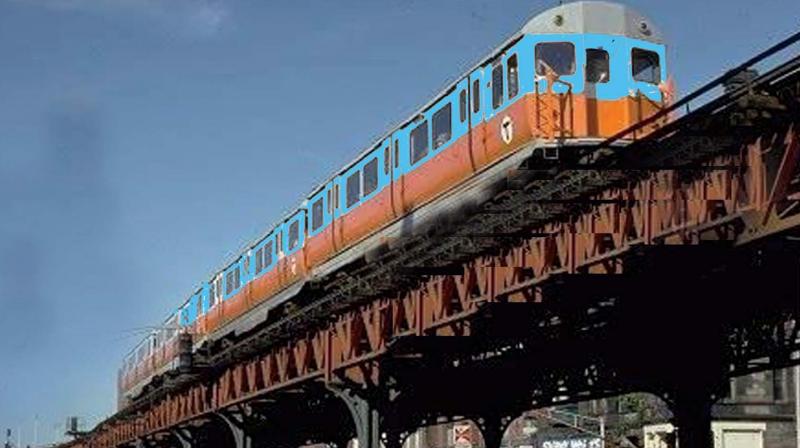Kerala: Elevated rail plan may spoil 3rd, 4th lines

Kochi: The Kerala Rail Development Corporation Ltd (KRDCL) has proposed the construction of a separate elevated corridor in the 510-km Thiruvananthapuram-Kasargod section so as to run semi high-speed trains. The move by the KRDCL, a joint venture company formed by the state government and the union railway ministry, could torpedo the plan to set up third and fourth lines in a cost-effective way. “The aim is to have a fast transportation mode as the existing road and rail network is getting congested. A separate elevated corridor will be erected over concrete pillars for double line which will be fully electrified. The project cost is estimated to be around Rs 55, 000 crore," a senior official associated with the KRDCL said.
As per the report submitted to the transport department on March 12, the trains can be operated at a speed of 180 kmph through the broad-gauge line section so as to cover the stretch in four hours. It's planned to conduct services in either direction using special train sets with each having 12 cars while during night, the conventional train services (superfast, express and Rajdhani) can be diverted to this route. However, the new line will have linkages with the existing track only at Kochuveli and Kasargod. "All other stations will be separately developed at suitable location. The stations proposed are Thiruvananthapuram, Kollam, Chengannur, Kottayam, Ernakulam, Thrissur, Tirur, Kozhikode, Kannur and Kasargod. A roadway will be developed under the elevated track," the report said.
"The route will pass through the same alignment proposed by the Delhi Metro Rail Corporation (DMRC) but the estimated cost will be only half of Rs 1,27, 849 crore, the cost of the original high-speed corridor project," the official said. When asked why the third and fourth line could not be laid beside the existing track, the official replied, "here we're mooting a high-speed transport mode. There are numerous curvatures in the exiting alignment which make it impossible to operate trains even at 100 kmph," he said. As per the report, the semi high-speed corridor can be completed in seven years. In December, the state government had submitted a preliminary report before the Railway Board for setting up the corridor.

